Overview of Conjunctivitis (Pink Eye)
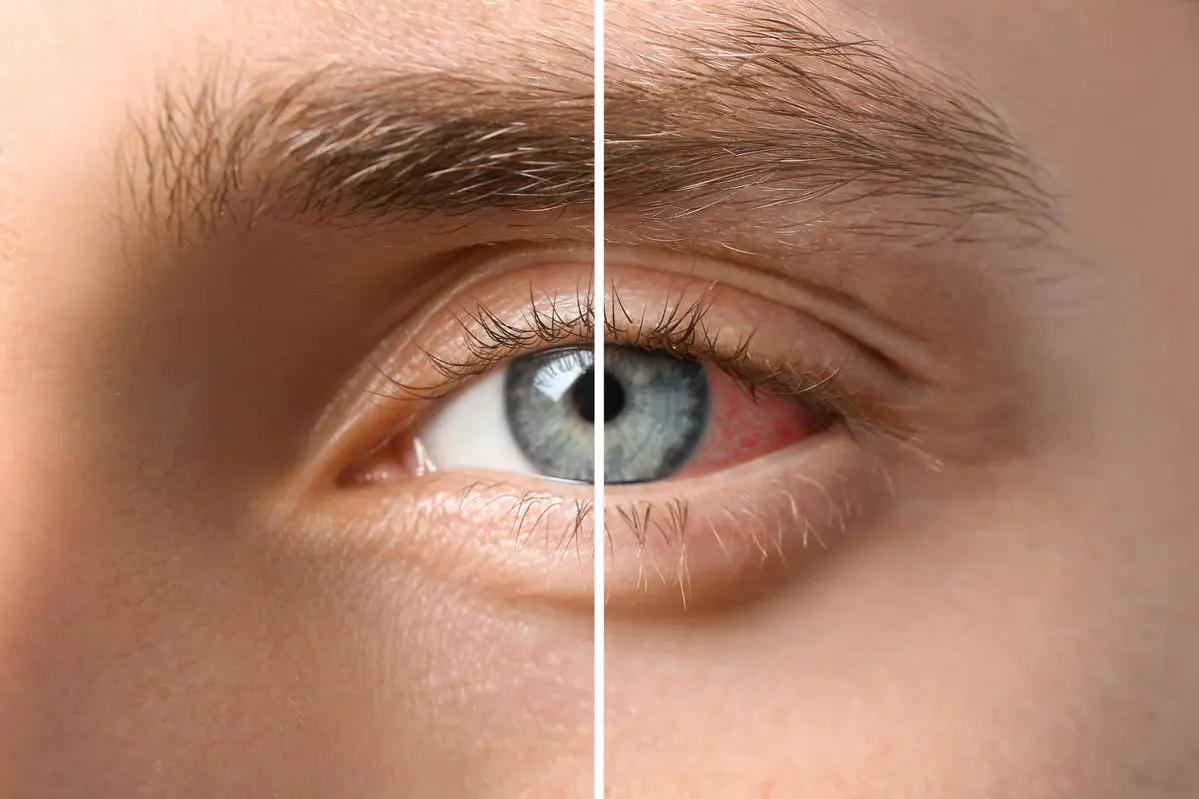
If your eyes feel red, sore, or irritated, rest and care for them immediately to prevent the spread of conjunctivitis.
Conjunctivitis (commonly known as pink eye) is a frequent eye condition, especially during seasonal transitions or sudden weather changes. It is caused by viruses or bacteria and spreads easily from person to person through direct contact or shared personal items such as towels, washbasins, or pillows.
Typically, viral conjunctivitis is mild and resolves on its own within 7–10 days without complications. However, in some cases, it may last 2–3 weeks, especially if proper eye hygiene is not maintained or inappropriate medications are used. If symptoms persist, it is recommended to visit an eye specialist for examination and appropriate treatment.
Symptoms of Conjunctivitis
People with conjunctivitis often experience the following symptoms:
- Red, swollen eyes with a gritty or foreign body sensation.
- Thick discharge or pus, especially in the morning.
- Light sensitivity and excessive tearing.
- Occasional mild fever, swollen lymph nodes near the ear, or eye fatigue.
Although conjunctivitis does not cause permanent vision loss, improper care may lead to corneal inflammation, temporary vision reduction, or transmission to family members, especially children.
How to Care for Your Eyes When You Have Conjunctivitis
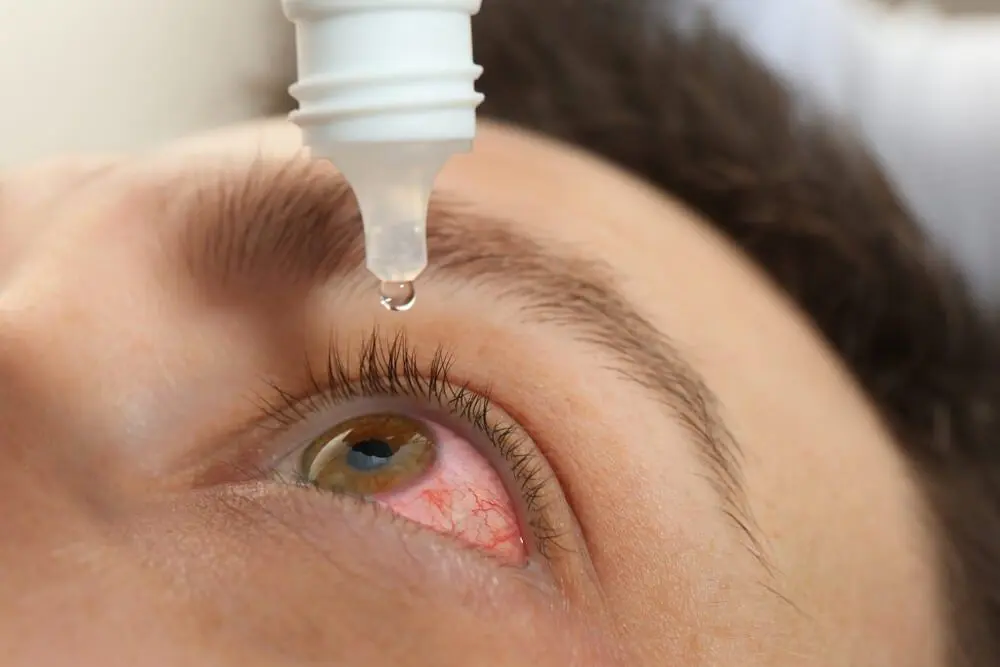
Use saline or artificial tears to soothe and protect your eyes from infection.
Keep Your Eyes Clean
Maintaining eye hygiene is crucial for faster recovery and preventing infection spread:
- Rinse your eyes with 0.9% saline solution or sterile water 3–4 times per day to remove dirt, discharge, and bacteria.
- Use a clean tissue or cotton pad for each eye. Avoid using the same towel to prevent cross-contamination.
- Do not rub your eyes — this can spread bacteria and damage the cornea.
- Avoid using tap water or unverified eye drops. Only use products prescribed or approved by an eye doctor or pharmacist.
- Maintain good personal hygiene: wash your hands with soap before touching your eyes or applying eye drops.
Cold Compress to Reduce Swelling
If your eyes are swollen, apply a cool damp cloth over closed eyelids for 5–10 minutes to relieve discomfort and reduce puffiness. Avoid using hot compresses or placing ice directly on your eyes as this can cause corneal burns. Cold compresses help soothe inflammation and ease irritation around the eyes.
Avoid Bright Light
Wear sunglasses or tinted protective glasses outdoors to reduce light sensitivity and prevent dust or bacteria from entering your eyes. When indoors, limit screen time from phones or computers to allow your eyes to rest.
Tips to Prevent the Spread of Conjunctivitis
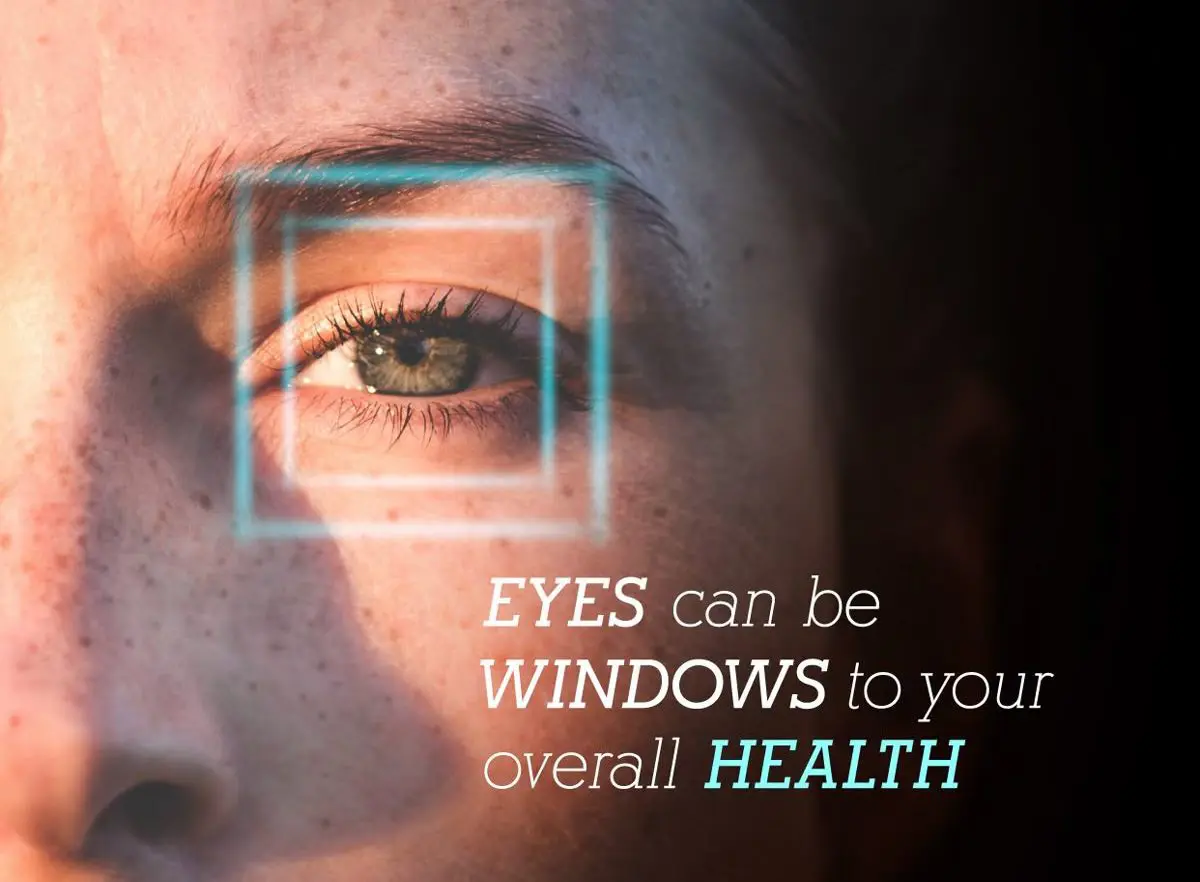
Your eyes reflect your overall health.
Conjunctivitis spreads easily, so patients should strictly follow personal hygiene measures to protect themselves and others:
- Use a clean towel or tissue each time you wipe your face or eyes.
- Use personal towels, blankets, and pillows. Do not share personal items.
- Wash hands frequently with soap, especially before eating, after coughing, sneezing, or using the restroom.
- Avoid touching your eyes. If you accidentally do, wash your hands immediately with antibacterial soap.
- Do not wear eye makeup while infected, as it can worsen inflammation.
- Avoid wearing contact lenses until all symptoms of conjunctivitis have cleared.
These simple habits can help prevent conjunctivitis from spreading in the community, particularly in crowded workplaces or schools.
Things to Avoid When You Have Conjunctivitis
Along with maintaining proper eye hygiene, patients should choose appropriate eye drops and avoid using corticosteroid-based or unverified products. These may reduce inflammation temporarily but can damage the cornea, increase the risk of infection, and delay healing.
Also, avoid rubbing your eyes, swimming, or exposing yourself to dusty or smoky environments while recovering. If your eyes become more painful, swollen, or produce thick discharge, stop using your current medication and see an eye specialist immediately.
When to See an Eye Doctor
You should visit an ophthalmologist or eye clinic if you experience any of the following:
- Severe eye pain or noticeable vision loss.
- Extreme light sensitivity, glare, or blurry vision.
- Heavy discharge or pus causing difficulty opening your eyes.
- Symptoms lasting longer than 7–10 days without improvement.
- Accompanied by fever, headache, or swollen lymph nodes near the ear.
Early examination helps determine the exact cause (virus, bacteria, or allergy) and allows for the right treatment plan, preventing complications or transmission to others.
Effective Ways to Prevent Conjunctivitis
To maintain healthy eyes, you should:
- Wash your hands properly with soap for at least 20 seconds.
- Avoid sharing personal items with others.
- Limit close contact with infected individuals.
- Keep your living environment clean, ventilated, and free from dust and smoke.
- Boost immunity with a diet rich in leafy greens and fruits containing vitamins A and C.
Although conjunctivitis is usually mild, it spreads quickly. Proper eye care and hygiene practices are key to faster recovery and community protection. If symptoms persist or worsen, consult your doctor for specialized care.
Tip: Wash your hands regularly, avoid touching your eyes, use separate towels, and never self-medicate. Healthy eyes are the mirror of your overall well-being.

 vi
vi 17-Oct-2025
17-Oct-2025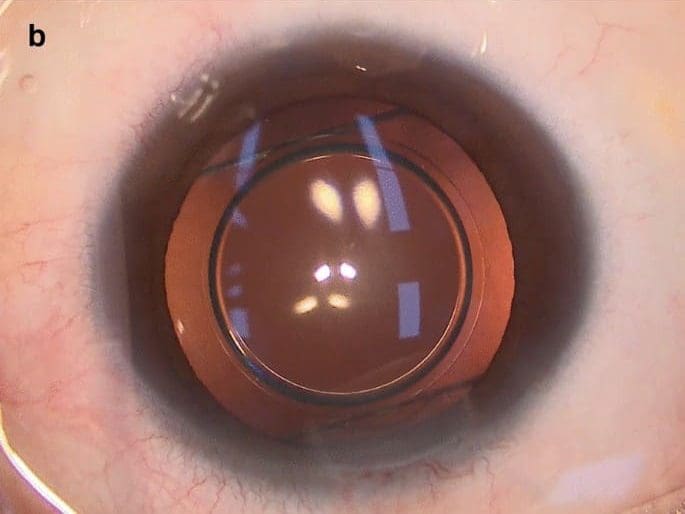


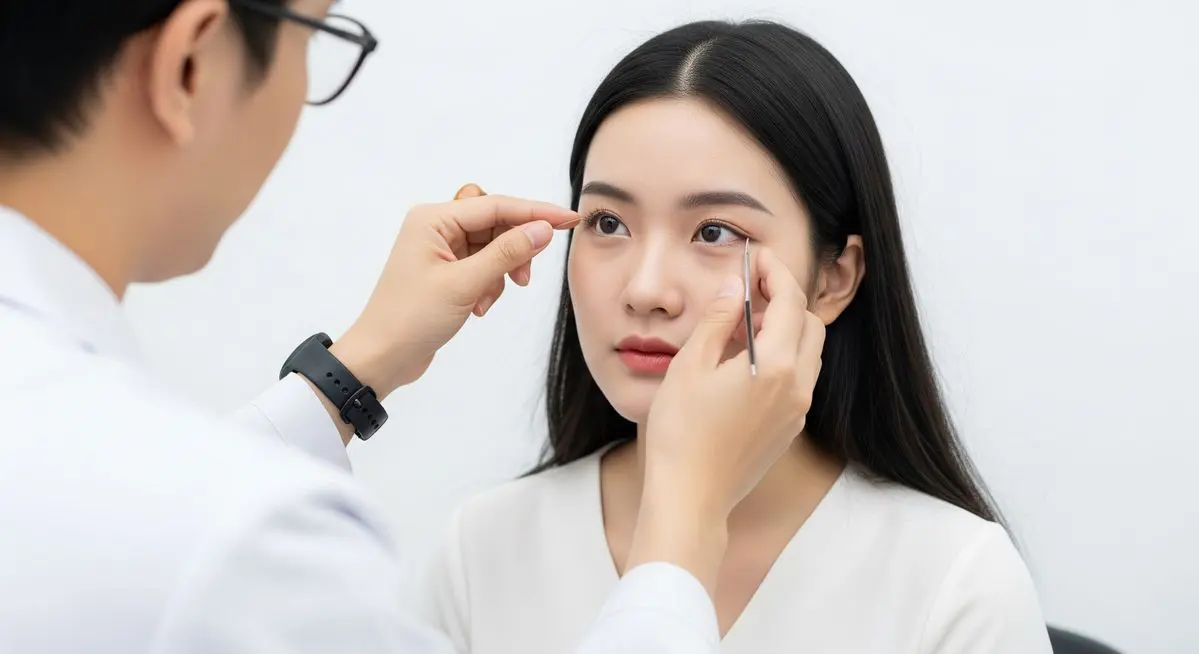
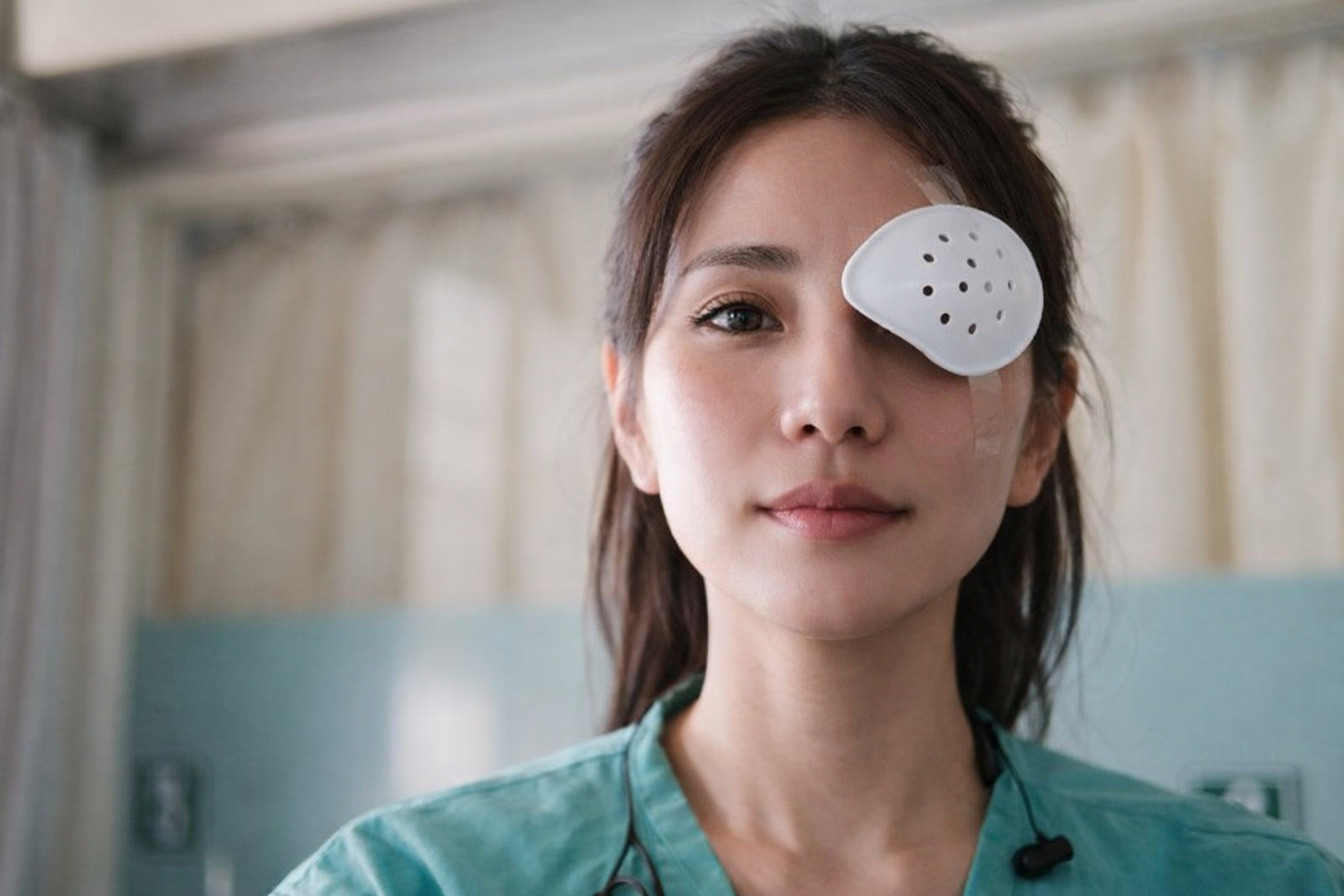








 0916.741.763
0916.741.763 Appointment
Appointment